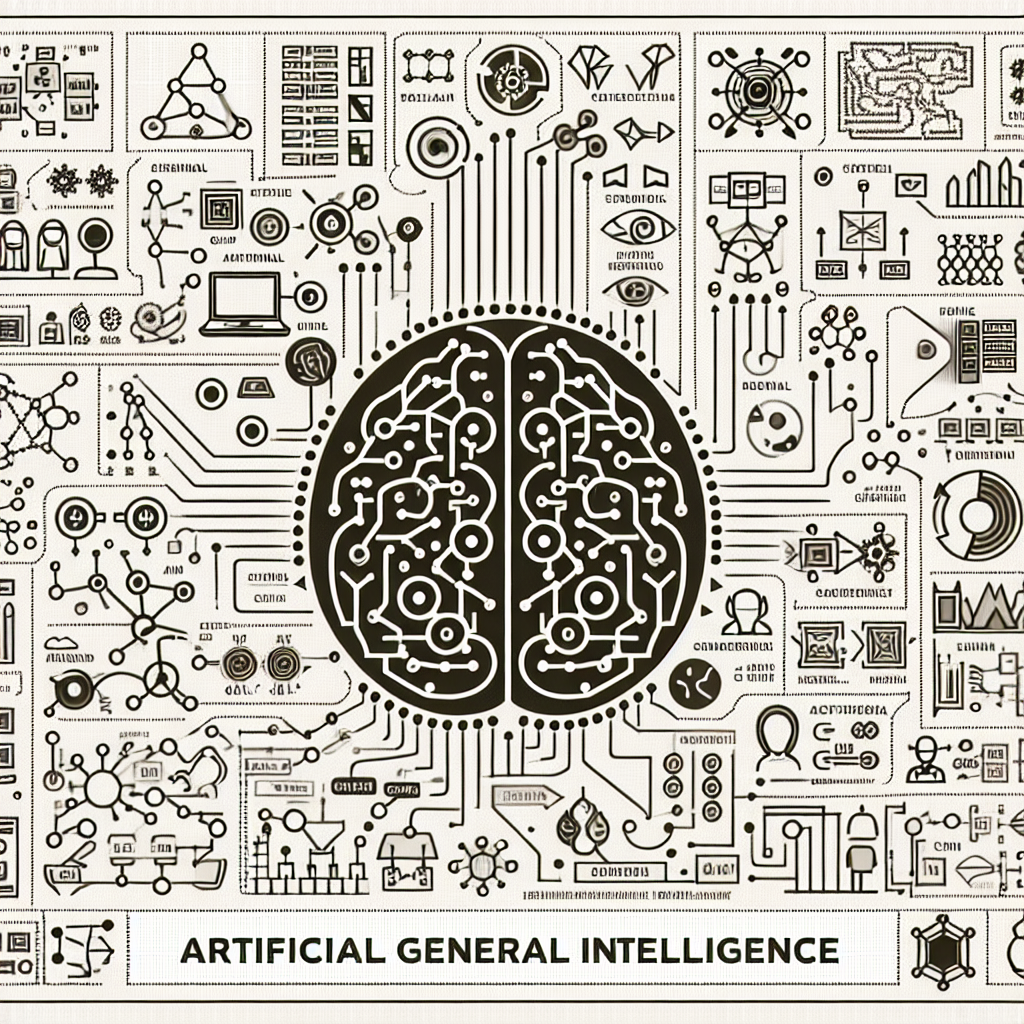Demystifying AGI: What You Need to Know
Artificial General Intelligence (AGI) is a term that has been gaining traction in recent years as advancements in artificial intelligence continue to push the boundaries of what machines can achieve. While most people are familiar with the concept of artificial intelligence (AI) in the form of virtual assistants like Siri or Alexa, AGI represents a more advanced form of AI that can perform any intellectual task that a human can.
In this article, we will explore what AGI is, how it differs from other forms of AI, and what implications it may have for society in the future.
What is AGI?
AGI refers to a type of artificial intelligence that is capable of understanding and performing any intellectual task that a human can. This includes tasks such as reasoning, problem-solving, learning, and understanding natural language. AGI is often contrasted with narrow AI, which is designed to perform specific tasks, such as playing chess or recognizing images.
AGI is sometimes referred to as “strong AI” or “true AI” because it represents the ultimate goal of artificial intelligence research: creating machines that possess general intelligence comparable to that of humans.
How is AGI Different from Other Forms of AI?
AGI differs from other forms of AI in several key ways. Firstly, AGI is designed to be able to perform any intellectual task that a human can, rather than being limited to a specific set of tasks. This means that AGI has the potential to be much more versatile and adaptable than other forms of AI.
Secondly, AGI is intended to be able to learn and improve itself over time, much like a human can. This is in contrast to narrow AI, which is typically designed to perform a specific task with a fixed set of rules.
Finally, AGI is designed to be able to understand and interact with humans in a natural way. This includes being able to understand natural language, recognize emotions, and make decisions based on complex social cues. This level of sophistication is beyond what current AI systems are capable of.
What Implications Does AGI Have for Society?
The development of AGI has the potential to have a profound impact on society in a number of ways. Firstly, AGI has the potential to revolutionize the way we work by automating a wide range of tasks that are currently performed by humans. This could lead to significant changes in the job market, with some jobs becoming obsolete while new ones are created.
Secondly, AGI has the potential to improve the quality of healthcare by enabling more accurate diagnoses and personalized treatment plans. AGI could also help to accelerate scientific research by analyzing large amounts of data and identifying patterns that humans might miss.
However, the development of AGI also raises a number of ethical and societal concerns. For example, there are concerns about the potential for AGI to be used in harmful ways, such as autonomous weapons or surveillance systems. There are also concerns about the impact that AGI could have on privacy, autonomy, and inequality.
FAQs
Q: When will AGI be developed?
A: The development of AGI is a complex and challenging task that is likely to take many years, if not decades. While there have been significant advancements in AI in recent years, achieving AGI will require a major breakthrough in our understanding of how intelligence works.
Q: Will AGI be able to surpass human intelligence?
A: It is theoretically possible for AGI to surpass human intelligence, as it is not limited by the same biological constraints as humans. However, whether this will actually happen remains to be seen.
Q: What are the risks of AGI?
A: There are a number of risks associated with the development of AGI, including the potential for misuse, job displacement, and ethical concerns. It will be important for researchers and policymakers to address these risks as AGI continues to develop.
In conclusion, AGI represents an exciting and potentially transformative development in the field of artificial intelligence. While there are still many challenges to overcome before AGI becomes a reality, the potential benefits are vast. It will be important for researchers, policymakers, and society as a whole to consider the implications of AGI and work together to ensure that it is developed in a responsible and ethical manner.

